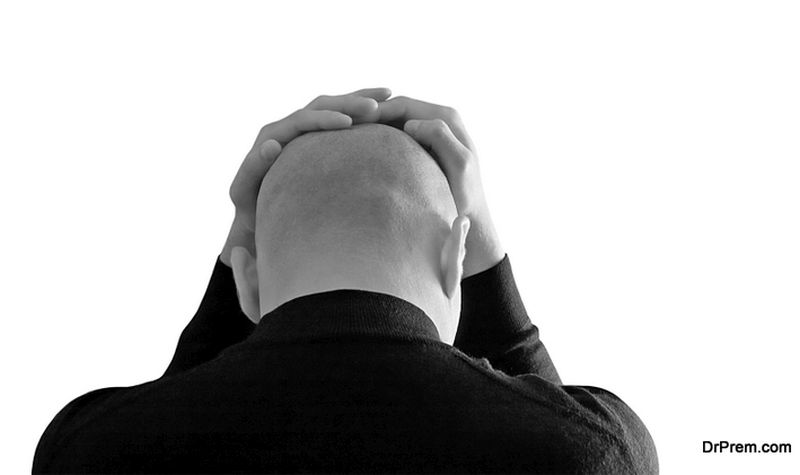Clinical depression is a severe medical condition that affects your body, thoughts, mood and behavior. People suffering from this depression say that, “they don’t feel like themselves anymore”. Hence, we have given several ways to deal with clinical depression.
Medication
It usually takes two to four weeks for anti depressants to start having some effects. In some cases, patients need to try different anti depressants in order to find the one best suited for them. Friends and relatives usually notice the effect of medicines before the depressed person himself notices.
There are various anti depressant medications that are available in the market but they should be taken only when prescribed by the specialist otherwise they can cause very severe side effects.
Psychotherapy
Many psychotherapy techniques are available to cope up with clinical depression. The two most effective are cognitive behavioral therapy (CBT) and interpersonal therapy (IPT).
Cognitiveâbehavior therapy is one of the widely used psychological treatment for depression. It assumes that moods in depressed people are triggered and sustained because of illogical beliefs and a poor self image, the surroundings and the future.
In this therapy, depressed people are aided to recognize their defective presumptions and processing faults, and then face them by remaining steadfast and positive. CBT sessions are standardized and last between 15 to 20 mins. As homework, patients are asked to perform certain tasks, such as keeping a daily record of activities and listing negative thoughts as they occur.
The IPT assumes that psychological issues develop because of poor relationships experienced during childhood. IPT was developed as a structured psychological treatment for problems in relation to the personal roles and interpersonal relationships of depressed patients. Therapy sessions are designed to be standardized and brief (15â20 min). Clear goals are set and progress monitored, and new coping strategies are tried out by the patient as homework strategies.
Bibliotherapy
In the case of anxiety and depression a lot of distress can be caused when a person does not have accurate information about his condition. Guided reading, or bibliotherapy as it is otherwise known, is a technique where books, videos, audiotapes, internet etc, provide information about a particular health problem. This enable’s a person to cope up with that problem more effectively. Bibliotherapy has been found to be very effective. Experts believe that better therapeutic results are achieved when people see themselves as an active part of the recovery process.
There are hundreds of books that have been written on depression but they havenât all proven to be effective, however, there are a number of books that are really helpful. Some examples of these books include:
Burns D. (2000) Feeling Good: The New Mood Therapy, Avon Books.,Lewinsohn PM (1992) Control your Depression, Simon and Schuster, Tanner S and Ball J (2000) Beating the Blues, Sheldon Press, Greenberger D. Padesky C, (1995) Mind over Mood: Cognitive Treatment Therapy Manual for Clients, Guilford Press.
It is important to understand that it is not enough just to read a book. In order to gain maximum benefit it is important to implement and practice the techniques outlined in these books.
Diaphragmatic (Relaxation) Breathing
It has been known for centuries that breathing has a very powerful impact over our physiological and psychological well being. It can be very confusing to ascertain the relation between the breathing and the psychology for an ordinary person, as this process has been going on from the very instant we came into this world. Yet research has shown that the way we breathe can have a very powerful effect on how we feel. The way we breathe can either stimulate our stress response or switch it off.
Relaxed abdominal breathing is a calm and slow way of breathing where breathing is mainly done from the diaphragm/abdomen. If you watch a child who is happy and relaxed you will observe that their abdomen inflates when they inhale and it goes in when they exhale. There is a very small chest movement. The diaphragmatic breathing this way brings down the muscle tension and stress levels within a couple of minutes. It also activates parasympathetic nervous system which happens to be the relaxation branch of the Autonomic Nervous System.
There is another type of breathing called thoracic breathing. It is mainly controlled by the chest and only to some extent by the abdomen. This type of breathing is shallow and fast. If we watch a child who is upset, the breathing changes from calm diaphragm breathing to the chest breathing which is fast. Chest breathing activates the Sympathetic part of the Autonomic Nervous System, which happens to deal with stressful conditions.
Nutritional therapy
One valuable therapy to use in the management of depression is Nutritional Therapy. Clinical depression is a serious condition with many causes that can aggravate it. One of the causes can be a poor nutrition. Many dietary factors have been found to be responsible for the development and sustenance of depression, such as low consumption of vitamins like the folic acid, low mineral intake etc.
The type of diet you follow can have a very powerful influence on your ability to deal with stress. It has been found that people who drink coffee daily, risk of depression is lower for them. Eating chocolates lowers the cortisol level. The other foods like saffron, blueberries, carbs and oranges are also very effective in treating depression.






